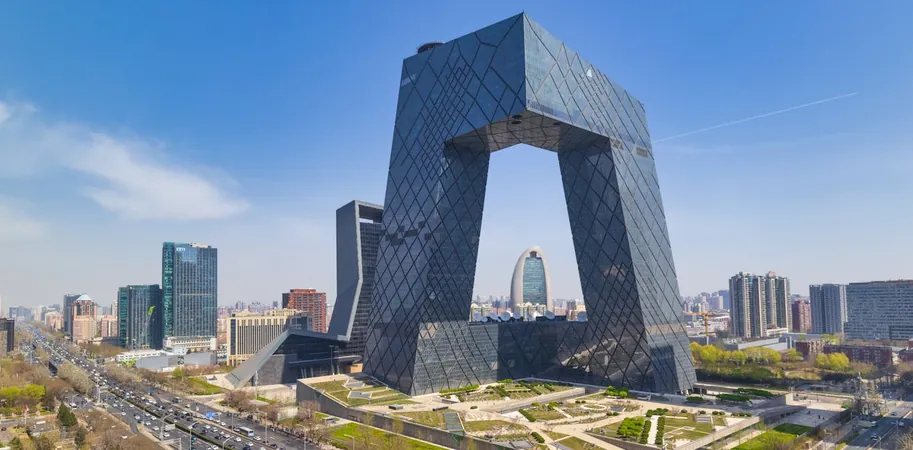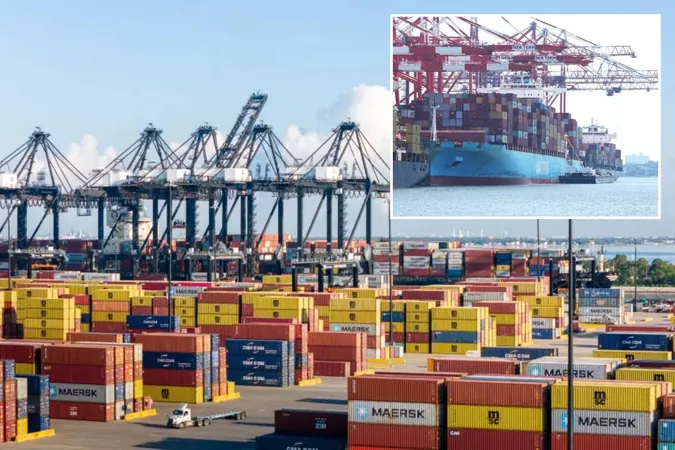
China Races Ahead in the Clean Energy Revolution: Key Takeaways from Beijing and Hong Kong
2024-09-30
Author: Yan
China's Dominance in Clean Energy Investments
China is currently at the forefront of the clean energy revolution, outpacing both the United States and Europe in investments and manufacturing capabilities. Over the last five years, China's expenditure on clean energy has been ten times greater than that of its Western counterparts. With an overwhelming production capacity, China generates 90% of the world's solar panels, over 70% of lithium batteries, and 65% of wind turbines.
Strategic Positioning and Global Market Access
This strategic positioning not only ensures a leading role in the burgeoning renewables market, but also potential access to a multi-trillion-dollar global industry as evidenced by the rapid growth of renewable technologies. Despite ambitious initiatives like the European Green Deal and the U.S. Inflation Reduction Act, which aim to invest nearly $1 trillion each over the next decade, these efforts are unlikely to shift China's market hegemony anytime soon.
Manufacturing Capabilities and Cost Reduction
China's strength lies not just in energy generation but also in its advanced manufacturing capabilities. For instance, the Tongwei solar manufacturing plant has the capacity to meet 10% of global solar demand single-handedly, and many new facilities are designed to modularly expand as demand increases, further driving down costs.
Decarbonization Efforts and National Objectives
Our research surveyed energy experts in leading cities like Beijing and Hong Kong, revealing that decarbonization efforts are heavily influenced by national agendas, economic feasibility, implementation ease, and additional benefits. A significant motivator of these initiatives is China’s commitment to achieving carbon neutrality by 2060, a directive that propels cities toward setting their own ambitious carbon targets, such as Hong Kong's goal for 2050.
Government Support for Renewable Energy
At every level of government, renewable energy is viewed favorably. Beijing and Hong Kong are prioritizing the acceleration of electrification in transportation and capitalizing on the plummeting costs of renewable technologies. Unlike carbon capture technologies, which are seen as a means to deal with the harder-to-tackle emissions, renewables are paving the way for immediate reductions.
Focus on Renewables over Diverse Strategies
While many regions including the U.S., UK, and Europe emphasize diverse strategies incorporating renewables and clean technologies like nuclear and carbon capture, China’s focus remains predominantly on renewable energy investments. Case in point, the rapid electrification of transportation and support for renewables are seen as low-cost, low-risk strategies that can lead to significant and quick emission reductions.
The Role of Sensitive Intervention Points (SIPs)
The concept of sensitive intervention points (SIPs) becomes essential in this context. SIPs can catalyze drastic change in socio-economic systems through minor yet strategic policy shifts. These include advancements in renewable technologies that benefit from high learning rates — as production scales up, so do efficiencies and reductions in costs. Technologies like solar and wind have demonstrated a remarkable capacity for rapid adoption and cost reduction, aided by their modular nature and public support.
Policy Measures for Competitiveness
For countries like the UK, lacking China’s manufacturing prowess, adopting similar successful strategies might be crucial to staying competitive in the clean energy race. Researchers from the University of Oxford suggest five critical policy measures, including leveraging electric vehicles as energy storage and promoting urban agriculture through vertical farms.
Urgency of Action Towards Net-Zero Goals
With less than 26 years remaining until the 2050 net-zero deadline, it is crucial for nations to act decisively. As urban areas expand and net-zero plans evolve, we may see that embracing SIP-thinking could facilitate accelerated progress in global clean energy transitions. Can the world keep pace with China’s rapid transition? Only time will tell!




 Brasil (PT)
Brasil (PT)
 Canada (EN)
Canada (EN)
 Chile (ES)
Chile (ES)
 España (ES)
España (ES)
 France (FR)
France (FR)
 Hong Kong (EN)
Hong Kong (EN)
 Italia (IT)
Italia (IT)
 日本 (JA)
日本 (JA)
 Magyarország (HU)
Magyarország (HU)
 Norge (NO)
Norge (NO)
 Polska (PL)
Polska (PL)
 Schweiz (DE)
Schweiz (DE)
 Singapore (EN)
Singapore (EN)
 Sverige (SV)
Sverige (SV)
 Suomi (FI)
Suomi (FI)
 Türkiye (TR)
Türkiye (TR)